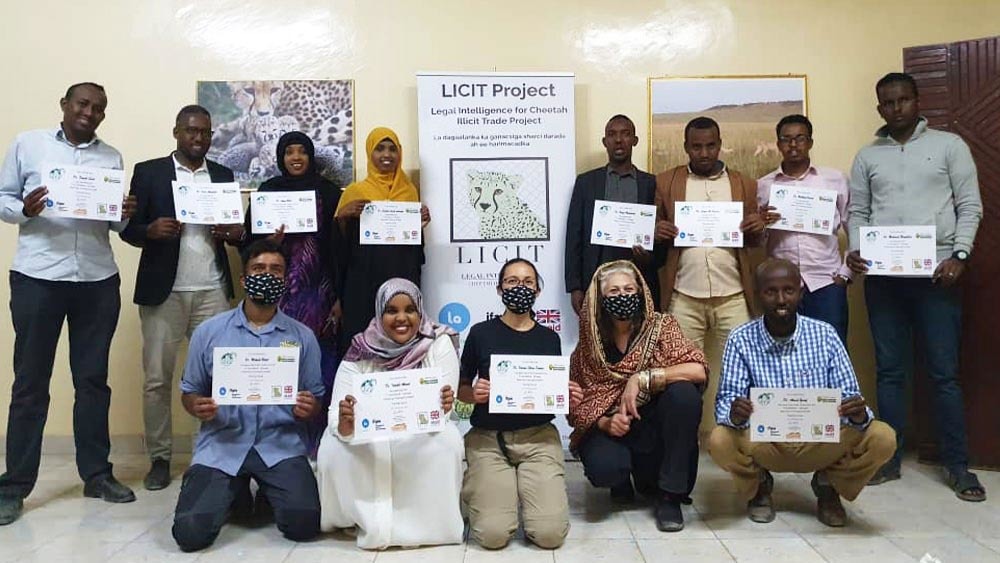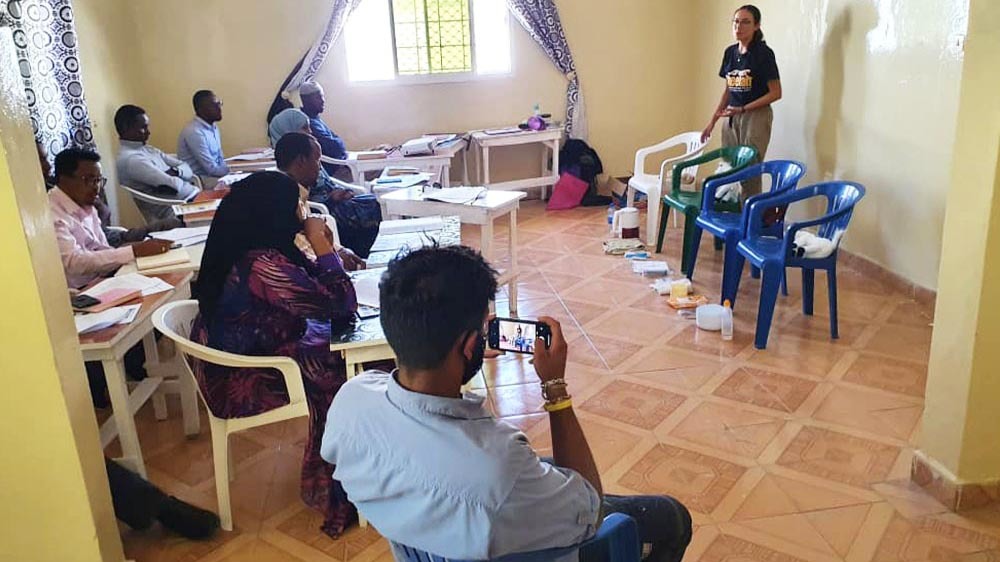Cheetah LICIT – Horn of Africa
Dismantling cheetah trafficking in the Horn of AfricaProject LICIT holds first training workshop for Somaliland veterinarians
Project LICIT holds first training workshop for Somaliland veterinarians

Despite being a top predator and athlete of the highest caliber, cheetah populations are in trouble. The species is currently listed as vulnerable on the IUCN Red List, but with fewer than 7,500 individuals left, scientists are urging for the cheetah to be classified as Endangered ‘population at risk of becoming extinct’. What’s pushing them to the brink of extinction? The illegal pet trade.
IFAW partners with The Cheetah Conservation Trust (CCF) and Legal Atlas to combat cheetah and gazelle trafficking. The Cheetah Licit Trade (LICIT) project, funded by DEFRA through its International Wildlife Trade (IWT) Challenge Fund, focuses on Ethiopia and Somalia/Somaliland as countries where cheetahs are mostly poached from, and Yemen as the location where they are trafficked through.
IFAW funds workshop for Somaliland Veterinarians
During 12-15th February 2021 the team in Somaliland delivered the first workshop for veterinary doctors, funded by IFAW. The purpose of the trainings is to prepare these doctors, most of whom are livestock veterinarians, to give emergency treatment to cheetah cubs. The veterinarians represented the regions of Somaliland where the Ministry of Environment and Rural Development (MOERD), a local partner, has either confiscated cubs from illegal wildlife trade or rescued cubs from conflict situations with farmers.
“When a live animal is seized from traffickers, every minute counts. It is critical that frontline personnel are well trained in handling, care and treatment and this is especially true for vulnerable cheetah cubs. IFAW is proud to support this activity and the broader ambitions of the LICIT project. The issue of how to manage live animals rescued from illegal trade is a key area of collaboration for our Wildlife Crime and Wildlife Rescue Programs and we look forward to supporting similar efforts with our partners worldwide.” Matt Morley, Director – Wildlife Crime at IFAW.

The training consisted of lectures and hands-on practical sessions covering physical examination, emergency care principles, syndromes of disease when re-feeding a malnourished animal, dietary insufficiencies, and preventative care. The veterinarians were taught about Somaliland’s laws forbidding poaching and trade, the importance of keeping cheetahs in the wild, and the need to promote conservation of wildlife through education and engagement with local communities.
A second training session is planned on 19-22 February with eight veterinary doctors from the Somali Regional State of Ethiopia. The goal of the two trainings is to develop a network of veterinarians trained in cheetah care on both sides of the Ethiopia-Somaliland border in areas where illegal trade and conflict are known to occur most frequently.
Related content
Every problem has a solution, every solution needs support.
The problems we face are urgent, complicated, and resistant to change. Real solutions demand creativity, hard work and involvement from people like you.